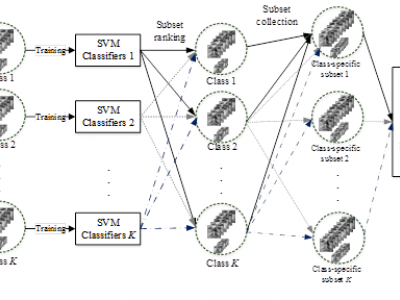Documents
Poster
Supervised-learning based face hallucination for enhancing face recognition

- Citation Author(s):
- Submitted by:
- Wengtai su
- Last updated:
- 11 March 2016 - 10:48pm
- Document Type:
- Poster
- Document Year:
- 2016
- Event:
- Categories:
- Log in to post comments
This paper presents a two-step supervised face hallucination framework based on class-specific dictionary learning. Since the performance of learning-based face hallucination relies on its training set, an inappropriate training set (e.g., an input face image is very different from the training set) can reduce the visual quality of reconstructed high-resolution (HR) face significantly. To address this problem, we propose to utilize supervised learning to learn a set of class-specific dictionaries so that one of the learned dictionaries can well fit the global and local characteristics of an input low-resolution (LR) face image. Besides, the representative coefficients of the input LR face image may be unreliable due to insufficient information contained in the LR input image. To resolve this issue, we propose a maximum a posteriori estimator to infer the global HR face. Experimental results demonstrate that our method cannot only effectively enhance the visual quality of a reconstructed HR face, but also significantly improves the accuracy of face recognition compared to existing hallucination methods.

